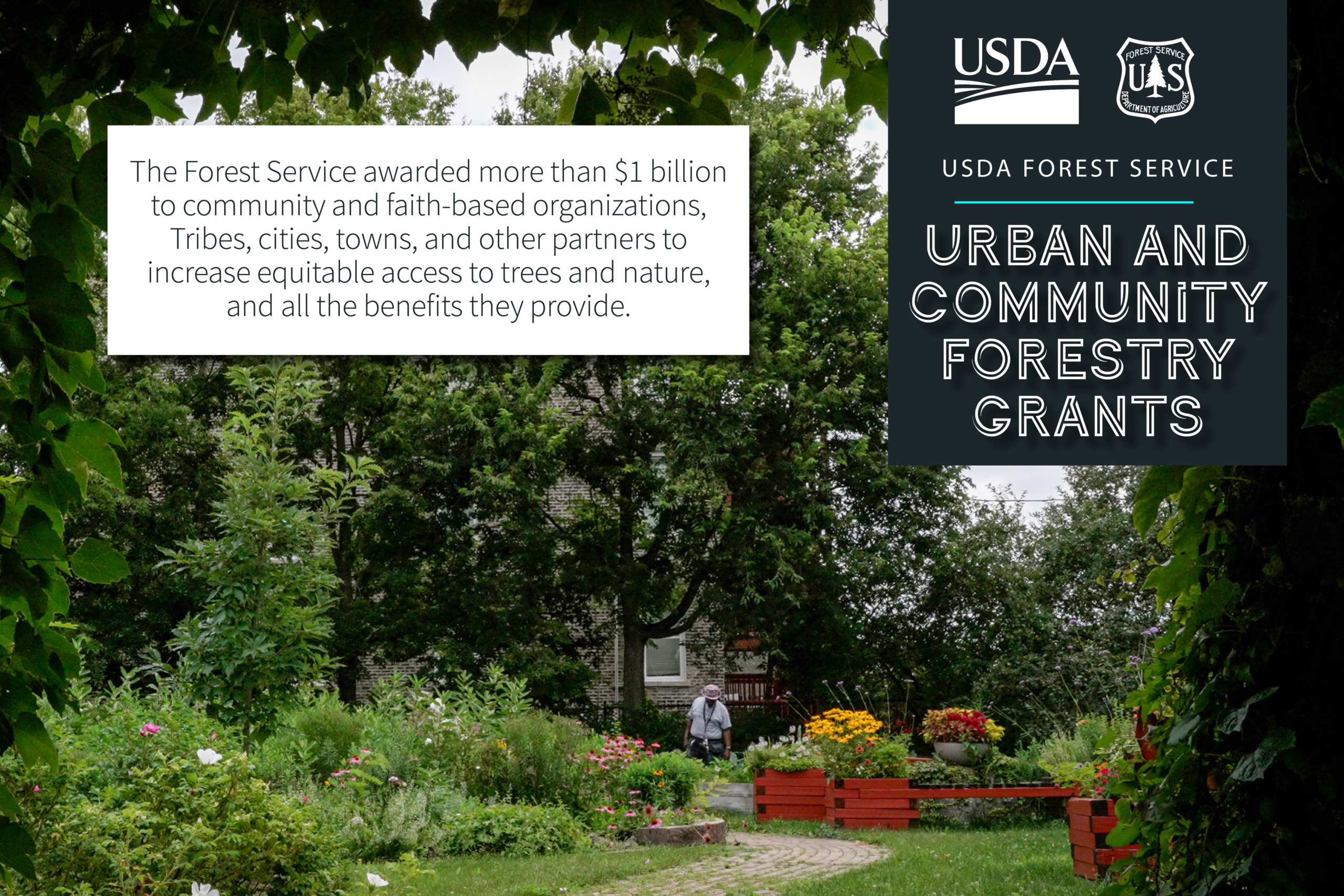By: Paul Johnson, Vice President, Urban and Community Forestry and Career Pathways at SFI
The Sustainable Forestry Initiative (SFI) is celebrating being named a recipient of the U.S. Department of Agriculture (USDA) Forest Service’s historic $1 billion investment in urban forests. This transformative funding aims to plant and maintain trees, combat extreme heat, and address climate change while improving access to nature in urban and suburban areas across the United States.

A Greener Tomorrow
With nearly 400 project partners united in their mission to ensure equitable access to trees and green spaces, this momentous investment promises to redefine our urban infrastructure and community connections to equitable green spaces. Remarkably, 100% of the funding has been dedicated to serving disadvantaged communities, recognizing the urgent need for inclusive environmental solutions.
The SFI team is deeply honored to have been chosen as a recipient of the USDA Forest Service’s 2023 Grant Funding for Urban Forests. This partnership underscores the importance of working collaboratively to create resilient, healthy urban environments and thriving canopies that will benefit generations to come.
SFI looks forward to contributing to this collaborative effort by utilizing the new SFI Urban and Community Forest Sustainability Standard. SFI’s educational initiative, Project Learning Tree, has developed resources, including the Green Jobs: Exploring Forest Careers and Black Faces in Green Spaces: The Journeys of Black Professionals in Green Careers, which will help by empowering individuals to explore careers in arboriculture and urban forestry, and ensuring that the next generation of environmental stewards and forestry professionals are diverse and inclusive.
Setting a New Standard for Urban Sustainability
Standards and their associated certifications are effective at increasing engagement and improving performance. They are sector-developed guidelines for the appropriate planning, management, and care of a resource and their associated benefits and risks. Standards do not merely provide a roadmap to sustainable management; they also allow organizations to prove their efforts through third-party certification.
The newly launched SFI Urban and Community Forest Sustainability Standard will serve as the compass for evaluating and benchmarking urban forests throughout the nation against 16 performance objectives and prioritizing improvement opportunities for the sustainability of these forests. The outcomes of the evaluations will directly support the management and improvement of urban forests, providing communities with social and economic benefits, including improved health and well-being, social cohesion and accessibility, outdoor learning environments, reduced air pollution, and improved urban design. Urban and community forests are also critical for climate change resilience and to promote nature-based solutions.
With over 80% of Americans living in urban areas, the significance of urban forestry cannot be overstated. Beyond green career pathways, urban forests contribute to improved human health, climate change mitigation, biodiversity conservation, and various other benefits. This historic grant will extend SFI’s reach and impact, shining a spotlight on the crucial role of well-managed forests and green career readiness support in sustainability efforts.
Forests for the Future for All
SFI collaborated with the International Society of Arboriculture, Arbor Day Foundation, American Forests, Tree Canada, and the Urban & Community Forestry Society to create the new standard. Together, we recognized the vital importance of urban and community forestry as a nature-based solution to address issues of health, disparity, and environmental sustainability.
Now, as SFI celebrates the USDA Forest Service’s historic investment in urban forests with American Forests, Arbor Day Foundation, and other national partners, we are proud to be recognized for collaborating towards more sustainably managed urban forests and are excited to contribute towards increasing their benefits for future generations.
